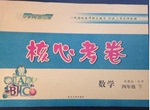题目内容
We arrived in Spain for the first time a few weeks ago. I decided to 21 a car because we had sold the one we had in England before 22 home. Yesterday the sales office rang us to say the car was 23 . I had tried out a model like it before, but as I was not yet 24 driving in this city, my wife did not want me to collect it 25 so we went together to 26 it. We paid for the car and 27 the papers. They told us that there was 28 petrol(汽油)to take us to a garage, where we could fill up. The 29 garage to the office was about 100 yards away and we got there 30 . But when I turned into main road I suddenly saw a lot of cars racing 31 me. I got out of 32 as fast as I could by backing into the garage 33 and the man behind 34 me.
“It’s such a problem to 35 to drive on the right side, isn’t it?” my wife said. “Yes, if only I had had a few lessons for 36 .” I replied. “You had better go 37 on the way home,” my wife said. “You’d be sorry if you had 38 on the first day, wouldn’t you?” While we were talking, the man behind got out of his car and said in good English,“ Would you mind telling me 39 you are thinking of leaving? 40 are you going to sit in your car all day?”
21. A. borrow B. drive C. buy D. choose
22. A. leaving B. making C. returning D. getting
23. A. right B. ready C. fixed D. sold
24. A. sure of B. satisfied with C. interested in D. used to
25. A. on my own B. right away C. in a hurry D. on the way
26. A. receive B. bring C. order D. fetch
27. A. accepted B. wrote C. signed D. copied
28. A. little B. enough C. much D. no
29. A. best B. nearest C. quickest D. cleanest
30. A. lately B. directly C. safely D. slowly
31. A. after B. with C. around D. towards
32. A. their way B. the garage C. their sight D. the car
33. A. at last B. once more C. as usual D. as well
34. A. caught B. cheered C. shouted at D. chatted with
35. A. prepare B. continue C. choose D. remember
36. A. discussion B. adventure C. experiment D. practice
37. A. carefully B. smoothly C. quickly D. differently
38. A. an error B. a problem C. as accident D. a headache
39. A. when B. why C. how D. what
40. A. For B. Or C. But D. So
21---40 CABDA DCBBC DABCD DACAB
解析:
21. C 解析:buy 意为“买”。根据下文中的“had sold the one we had in England”可判断出决定买一部汽车,因为原来的那辆已经卖了。borrow 意为“借,借用”;drive 意为“驾驶,开(汽车等)”;choose 意为“选,选择,挑选,拣,选定”。
22. A 解析:leave 意为“离开”。根据上文中的“We arrived in Spain for the first time a few weeks ago.”可判断出在离开家前把在英国有的那辆汽车卖了。make 意为“做,作,造,制造,做成,造成,建设,创作,著作,拟,起草,制定,设置,征收”;return 意为“回转,回来,回去,返回,折回”,before returning home表示“在返家前”;get 意为“到达”,before getting home表示“在到家之前”。都与上文的内容矛盾。
23. B 解析:ready 意为“准备”。根据下文的内容可判断出出售汽车的公司打电话给作者告诉他已准备好了汽车。right 意为“不错的,正确的,真的,真正的”;fixed 意为“固定的,确定的,不变的”;sold 意为“出售的”。
24. D 解析:be used to doing sth.表示“习惯于做某事”。根据下文中的“my wife did not want me to collect it on my own so we went together to fetch it”可判断出作者不习惯于开这种型号的汽车。be sure of意为“确信”;be satisfied with 意为“对……感到满意”;be interested in 意为“对……感兴趣”。根据上文的内容可判断出如果作者对这种型号的汽车不满意、没把握或不感兴趣的话,就不会与妻子一起去买这种汽车。
25. A 解析:on one’s own 意为“独自一人”。根据下文中together 可判断出作者的妻子不想让他独自一人去买汽车。right away 意为“立刻”;in a hurry 意为“匆忙”;on the way 意为“在途中,接近”。
26. D 解析:fetch意为“去拿”,指离开说话处,去别处把某人或某物带来,包含双层动作。因为是去买车所以要用fetch,表示去了把车买回来。receive 意为“收到”;bring意为“拿来,带来”,指从别处拿(带)某人或某物到说话人处,由远及近;order 意为“命令,订购”,order it表示“订一辆汽车,与上文中的“Yesterday the sales office rang us to say the car was ready.”相矛盾。
27. C 解析:sign 意为“签署”。根据其宾语the papers可判断出表示签署文件。购买汽车一般要签署合同等文件。accept 意为“接受”;write 意为“写”;copy 意为“抄,誊,临(帖),摹写,复写”。
28. B 解析:enough 意为“足够的”,enough to do sth. 表示“……足够做某事”。根据下文中的“to take us to a garage”可判断出汽车里有足够把车开到加油站的汽油。little前不加冠词a表示否定,意为“几乎没有”,如果汽车里没有汽油就无法把车开到加油站。much 意为“许多”,根据常识判断,销售商为了赚更多的钱,不会在汽车里加许多的汽油。no petrol表示“没油”,自然无法把车开走。
29. B 解析:nearest 意为“最近的”,表示最近的加油站离销售公司有100码远。根据上文中的“They told us that there was enough petrol to take us to a garage”可判断出要加油必须去最近的加油站。best 意为“最好的”;quickest 意为“最快的”;cleanest 意为“最干净的”。
30. C 解析:safely意为“安全地”。根据上文中的“They told us that there was enough petrol to take us to a garage”可判断出作者把汽车安全地开到了最近的加油站,即表示在开到加油站前汽车里的油没有用完。lately 意为“近来,最近”;directly 意为“径直地,直接地”;slowly 意为“慢慢地”。
31. D 解析:towards 意为“朝,向”。根据句意可判断出当作者把车开回公路时,他看见许多汽车向他开过来。after 意为“在……之后”;with 意为“和……一起”;around 意为“在……周围”。
32. A 解析:get out of their way表示“避开他们开车的路线”。根据下文中的“by backing into the garage”可判断出作者为了不与他们相撞,把汽车开回了加油站。get out of the garage表示“出了加油站”,与下文中的“by backing into the garage”矛盾。get out of their sight表示“避开他们的视线”。get out of the car表示“从汽车里出来”,也与与下文中的by backing into the garage矛盾。
33. B 解析:once more 意为“再一次”。因为作者刚刚在加油站里加完了油,所以现在是再一次回到加油站。at last 意为“终于”;as usual 意为“照常”;as well 意为“又,也”。
34. C 解析:shout意为“喊叫”。根据上下文的情境可判断出那个人向作者大声喊道。catch 意为“捕捉,逮着,捕获,拦截”。cheer 意为“使振奋,使喜欢,使快慰,安慰”。chat with 意为“与……闲谈”。
35.D 解析:remember意为“想起,记着”。根据上文中的“but I was not very used to driving in this car”可判断出记着在右边开车是一个问题。prepare 意为“准备,预备,筹备”;continue 意为“接续,继续”;choose 意为“选,选择,挑选,拣,选定”。
36.D 解析:practice 意为“实践”,表示如果过去曾参加学习班进行实践;discussion 意为“议论,讨论,辩论,审议”;adventure 意为“冒险”;experiment 意为“实验,试验,尝试”。
37. A 解析:carefully意为“小心地”。根据上文的内容可判断出由于作者不习惯于开这种型号的汽车,遇到了麻烦,所以他的妻子告诉他要小心开车。smoothly 意为“平稳地”;quickly 意为“很快地”;differently 意为“不同地”。
38. C 解析:accident 意为“事故”,表示“如果你在第一天开车出事故就会后悔”。error 意为“错误,失误”;problem 意为“问题,课题,疑难问题,令人困惑的情况”。
39. A 解析:when引导宾语从句,意为“当……的时候”,表示“你介意告诉我你什么时候想离开吗?”why 引导宾语从句表示“为什么”;how引导宾语从句表示“如何”;what引导宾语从句时,在从句中作主语、宾语或表语。
40.B 解析:or意为“或者”,Would you mind telling me when you are thinking of leaving?和Are you going to sit in your car all day?是两个一般疑问句,所以要用or连接,表示“……,或者……”。

 小学同步三练核心密卷系列答案
小学同步三练核心密卷系列答案________five minutes________ before the last train left, we arrived at the station.
|
A.There being; to go |
B.It was; left |
C.It had; left |
D.There was; to go |